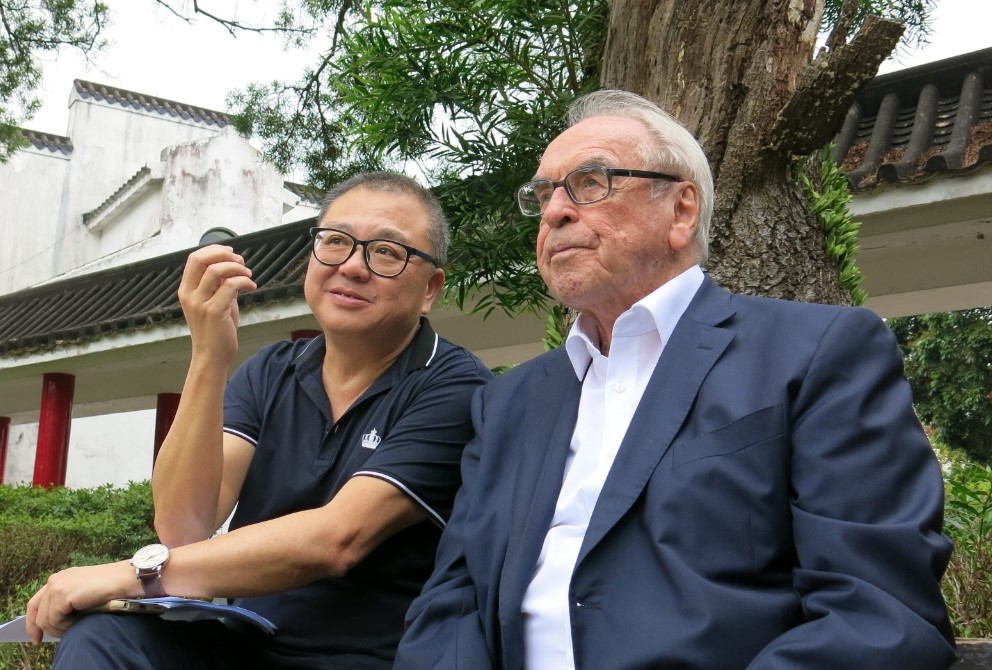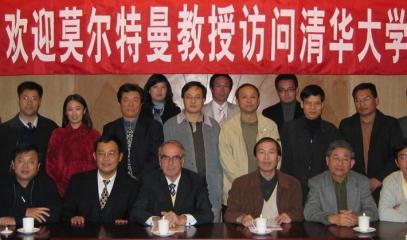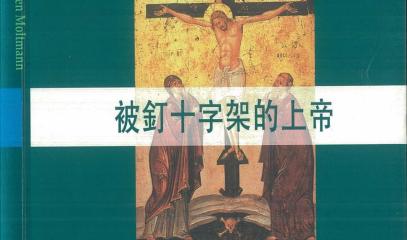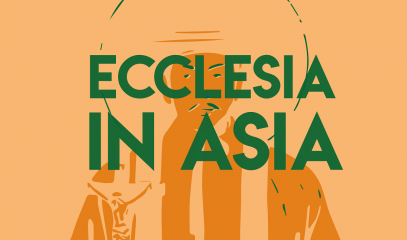Jürgen Moltmann and China
The great German Reformed theologian, who passed away a few days ago at the age of 98, nurtured dialogue with cultural Christians in Hong Kong and Beijing. He recognised the dignity and sincerity of another theological journey in China, however controversial, unusual, and even challenged by traditional circles.
Milan (AsiaNews) – Jürgen Moltmann, one of the greatest contemporary theologians, died 3 June in his native Germany. He was one of the most important scholars when I was undertaking my theological studies. I remember reading Theology of Hope (1967)[*] and The Crucified God (1974)[†] and taking them to my exams. These works have become classics of contemporary theology, and have had an enormous impact on my way of thinking about faith and on my theological theses. Inspired by Moltmann, I have long followed the Theology of the Cross and continue to reflect on the theological topic of human suffering.
Moltmann was one of the authors who did the most to answer the question of how it is possible to “do theology after Auschwitz”. His was not only an intellectual exercise; the tragedy of the war Germany had plunged into shook him to the core.
During the bombing of Hamburg, his hometown, the soldier standing next to him was killed by a bomb. Moltmann never stopped wondering why his mate died and he didn’t.
A young soldier, he survived, ending in a POW camp. Born into a non-religious family, he began to reflect on the mystery of life behind barbed wire. It was there that he became a Christian. He described this process in a few, yet moving words: “I didn't find Christ, he found me.”
Moltmann looked at the many important theological issues of our time: hope and the future, the pain and death of the oppressed, liberation and politics, the contextuality of all theology, creation and ecology.
He was one of the theologians who most closely linked the action of the Holy Spirit, the Kingdom of God, and the mission of the Church, overcoming narrow and stifling confessional visions of God's action in the Church and the world.
His theological discourse was always ecumenical, that is, shared with believers and thinkers of different confessions. Moltmann said, in a wonderful summary of his theological journey, that “My origin is Reformed — my future is ecumenical.”
For this reason, he was much loved and appreciated by theologians and believers of various Christian denominations even if, occasionally, his openness to Catholicism was not appreciated.
The Waldensian theologian Fulvio Ferrario knows this first hand, which he relayed in a beautiful piece written recently. He remembers that in 1985, as a guest of the Waldensian Faculty of Theology in Rome, Moltmann spoke of the ministry of unity in the Church, episkopé in Greek, emphasising that it is exercised by an episkopos, that is, a bishop. “The ecumenical Church will also need a universal episkopos. Why not the bishop of Rome?" The reaction of those present was less than enthusiastic.
Moltmann died at the age of 98 in the city of Tübingen, where he had taught for many decades. Tübingen is a capital of contemporary Christian theology; both Joseph Ratzinger and Hans Küng also taught there.
Küng and Moltmann were friends and both had a great interest in China. I met Küng in Beijing (I wrote about him when he died) and Moltmann in Hong Kong. We were, in different capacities, involved with the Institute of Sino-Christian Studies, the Lutheran centre with a strong ecumenical vocation, which has effectively promoted the revival of Christian studies in China and a group called cultural Christians since the 1980s.
Last year, a book titled Moltmann and China Theological Encounters from Hong Kong to Beijing was published in Hong Kong. The tome contains the debates that the German theologian held from 2014 to 2018 with humanities scholars from various Chinese universities, from Hong Kong to Beijing, including the foremost experts on Christianity: Zhuo Xinping, He Guanghu, and Yang Huilin from Beijing (with whom I have regularly collaborated); and Jason Lam and Lai Pan-chiu from Hong Kong.
These scholars belong to the group of cultural Christians I mentioned above, who have worked on a promising springtime for dialogue between the Christian faith and Chinese cultures.
Liu Xiaofeng, the founder of this movement, was inspired by Simone Weil and her observance of the Christian faith without belonging to the church (I will not go into any details about her baptism just before her death, about which I have written elsewhere). Chinese cultural Christians came to Christianity through their studies, not from any ecclesial proclamation or spiritual quest.
Some cultural Christians come to Jesus as an act of faith, but avoid entering Church structures controlled by the religious policy of political authorities. Now, unfortunately, in the context of the nationalistic policy called sinicisation, this movement has fewer possibilities of expression and dissemination.
Moltmann, together with his Catholic colleague Küng, recognised the dignity and sincerity of a theological journey in China, however controversial, unusual, and even challenged by traditional circles. The latter consider cultural Christians to be too academic and intellectual, and not very ecclesial and spiritual.
Moltmann's involvement in debates with scholars of Christianity in China was not infrequent or superficial. He sincerely accepted the complexity of that theological challenge and did not shy away from the interaction between the Christian faith and the cultures of China, in a context subjected to the imperatives of ideological and nationalistic policies.
After becoming one of the most important theologians of reference for cultural Christians and Reformed theologians, Moltmann had the courage and dedication to explore topics that are little visited outside Hong Kong and China. He showed the relevance of theological criticism even in places like Hong Kong and Beijing, starting with its inspiring principles: the Church's mission lives in the power of the Spirit at the service of building the Kingdom of God.
Big picture: Moltmann with Daniel Yeung, director of the Institute of Sino-Christian Studies in Hong Kong. In the other pictures: Moltmann in Beijing with some scholars of Christianity and the Chinese translation of his book The Crucified God.
ECCLESIA IN ASIA IS THE ASIANEWS NEWSLETTER DEDICATED TO CHRISTIAN COMMUNITIES IN ASIA. TO RECEIVE A WEEKLY UPDATE EVERY SUNDAY, CLICK HERE.
[*] Original in German, Theologie der Hoffnung (1964).
[†] Original in German, Der gekreuzigte Gott (1972).
31/12/2007
29/11/2021 13:40










.png)










